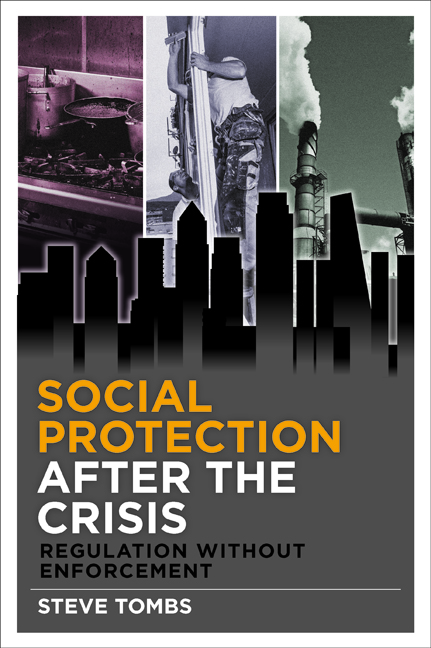Book contents
- Frontmatter
- Contents
- List of tables and figures
- About the author
- Acknowledgements
- one Introduction: some starting points
- two The new material and moral saliences of private capital
- three Framing the crisis: moral critique and the renewal of ‘business as usual’
- four Regulation, orthodoxy and hegemony: crisis, what crisis?
- five Re-regulation in action: ‘Better Regulation’
- six Regulatory inaction? Regulation without enforcement
- seven After regulation?
- Notes
- References
- Index
two - The new material and moral saliences of private capital
Published online by Cambridge University Press: 01 September 2022
- Frontmatter
- Contents
- List of tables and figures
- About the author
- Acknowledgements
- one Introduction: some starting points
- two The new material and moral saliences of private capital
- three Framing the crisis: moral critique and the renewal of ‘business as usual’
- four Regulation, orthodoxy and hegemony: crisis, what crisis?
- five Re-regulation in action: ‘Better Regulation’
- six Regulatory inaction? Regulation without enforcement
- seven After regulation?
- Notes
- References
- Index
Summary
We want a society that celebrates and values its business heroes as much it does its pop stars and footballers. So we must remove the barriers to enterprise in this country, reward risk-taking, and encourage innovation and creativity. (Mandelson, 2 November 1998, cited in Elliott and Atkinson, 2007, 47)
Introduction
The nature, level and outcomes of regulation – as well as dominant ideas regarding what constitutes desirable and feasible levels of regulation – are always a product and thus an effect of economic, political and social power. A key, if often under-explored, dimension of the power and resources to which corporations have access is their level of ‘moral capital’ – the ways in and the extent to which private corporate activity is valorised through a range of representations, claims and assumptions. This chapter examines the shifting moral capital of capital prior to and then, in Chapter Three, in the wake of, the financial and economic crisis. These chapters address an apparent paradox of the ‘post’ crisis period: namely, that while corporate morality was and remains exposed following the events of 2007, there are also ways in the post-bailout period in which the moral capital of capital has in fact been augmented. The rationale for these two chapters is that understanding this paradox requires an understanding of the social construction of corporate morality under conditions of neoliberalism. Moreover, the fact of the paradox is crucial in thinking about the key issue addressed in this book, namely the prospects for and limits of the more ‘effective’ regulation of capital in the current era.
I begin in this chapter by tracing some of the elements of the social construction of corporate morality before the crisis – that is, the emergence and consolidation of the moral capital of private capital under neoliberalism. In the following chapter, I pay particular attention to some of the ‘post crisis’ dynamics in the UK, most notably the various ways in which the crisis was framed – and the moral aspects and consequences of such framings. These forms of framing – in their own way small, competing morality plays – lay claim both to understanding the crisis, and, concomitantly, to offer lessons or prescriptions as to how, to what extent or even whether any recurrence could be prevented or mitigated.
- Type
- Chapter
- Information
- Social Protection after the CrisisRegulation without Enforcement, pp. 33 - 50Publisher: Bristol University PressPrint publication year: 2015

